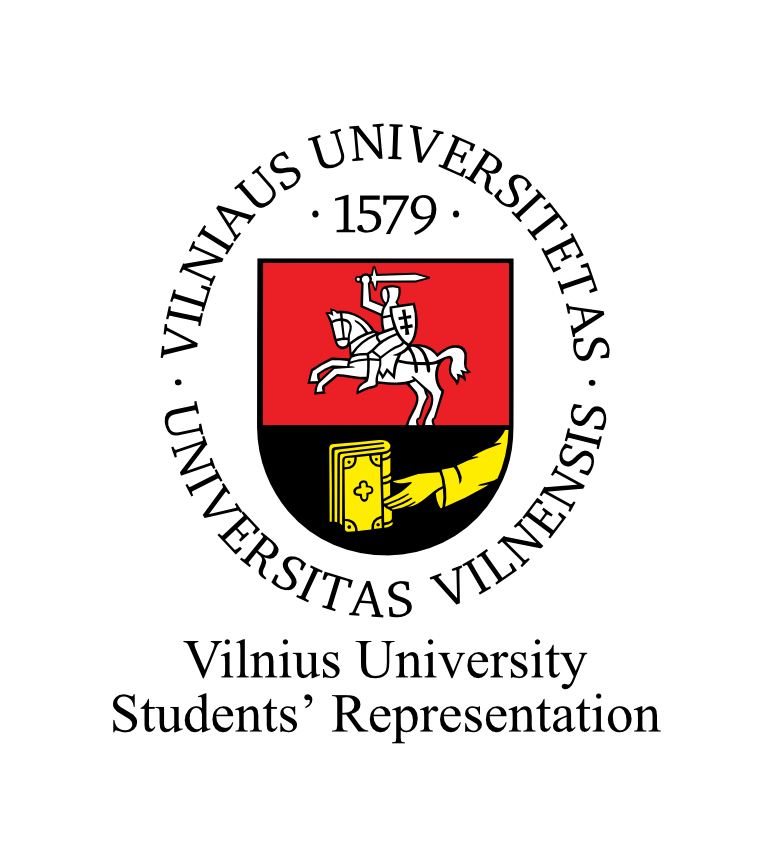Representing students in national level
LR Seimas
Participated in relevant meetings of committees and commissions of the Seimas, discussing issues related to students and higher education, expressing students' opinions and providing expert insights.
LR Seimas Committee on Education and Science
Proposed and commented on amendments on science and study law: the possibility of using academic leave for compulsory initial military service and its comparison to practical activities, while enrolling to higher education through the second admission queue, as well as the regulation of the fees for enrolment in higher education. An amendment to the law on the development of the social dimension in higher education and on the adjustment of the second admission queue was also initiated together with member of Seimas, but was not approved by the committee.
During the reporting period, actively participated in the committee meetings, representing the interests of the student(s). The VU SR President had a meeting with the chairpersons of the committee: Prof. Artūras Žukauskas (Member of Seimas until 14-11-2024) and Vaida Aleknavičienė (Chairperson of the committee of the current term). During the meeting with Prof. Arturas Žukauskas, the issues to be discussed in the session of the Republic of Lithuania were discussed, as well as the implementation of interdisciplinary studies, the admission fee to higher education and the development of the social dimension. In the meeting with Vaida Aleknavičienė we expressed our expectations regarding the changes in the regulations of doctoral studies, the implementation of the development of the social dimension, and the need for paid internships for students. Other issues that were previously on the agenda of the committee were also discussed, such as the regulation of nursing and midwifery practice.
In May 2025, the chairperson of the committee initiated a discussion in the on the criteria for the second admission queue and possible adjustments, taking into account the prioritisation of this issue among students, and in a meeting of the committee with the Research Council of Lithuania, a question was raised regarding the doubts about the transparency process, as mentioned in the VU SR letter.
LR Ministry of Education, Science and Sport
During the reporting period, contributed to raising and examining various issues, participating in consultations and made proposals to improve higher education. Had meetings with Justus Nugars, former deputy minister of the ministry, and Radvilė Morkūnaitė, current minister, took part in a discussion organised by VU SR. Had a meeting with the Head of the Study Department of the ministry, discussing the issue of interdisciplinary studies, the implementation of the priorities for the development of the social dimension, the integration of international students, and the procedures for the state study fund's student projects. We also met with minister Raminta Popovienė and deputy Minister Regina Valutytė. In the meeting with the new leadership of the ministry focused on the development of the social dimension in higher education, the importance of the change in the second admission queue, targeted support for students with disabilities, the integration of international students, and the provision of social guarantees for doctoral students. For more information on the meeting: https://www.vusa.lt/lt/naujiena/vu-sa-siulymai-lr-svietimo-mokslo-ir-sporto-ministerijai.
VU SA also took part in the public consultation on the implementation plan of the measures of the government programme, organised by the ministry. Several suggestions were made, some of which were taken into account.
During this period, a working group of the ministry was also launched on the action plan for the implementation of the measures of the government programme to develop a model for attracting international students, promoting the visibility of Lithuanian higher education abroad, ensuring cultural, social and economic integration of foreigners studying in Lithuania, and improving migration procedures to ensure the training of skilled specialists in priority sectors. The working group has only just started its work, but it is expected to develop a full attraction and integration model in the coming years.
In addition to the activities of the working groups:
- Presented a reaction on legislative alignment;
- Participated in discussions on the European degree and the benefits for students of having a European degree.
Ministry of National Defence of the Republic of Lithuania
We have established closer cooperation with the ministry. During this period, we participated in a meeting with the vice minister of the Ministry of Defence, Tomas Godliauskas, to discuss key issues and proposals concerning the participation and contribution of young people and students to national defence. During the meeting, we proposed to initiate the organisation of basic-military skills courses, to pay more attention to mobilisation and civil resistance training, not only in the regions, but also on a larger scale. A proposal was also made for the participation of the ministry in the smart practice programme at Vilnius University. Later on, we were in closer contact with the representatives of the Ministry on this topic.
During the reporting period, we also sent a letter to the Ministry with other youth NGOs regarding the extension of compulsory initial military service.
LR Ministry of Social Security and Labour
Contact established with the ministry on integration opportunities for international students. Discussions were held on the possibility of creating a complementary information website for international students with information on available internships and jobs. The possibility of encouraging employers to create more flexible workplaces for international students was discussed with the Lithuanian Employment Service, as well as the issues of compulsory health insurance and the lack of a Lithuanian language training system.
LR Ministry of Health
Sent proposals to the Ministry of Health for the implementation plan of government programme measures, focusing on the installation of hygiene and contraceptive stands in higher education institutions and student accommodation and including these measures in the list of reimbursable measures. In parallel, it was proposed to carry out a detailed analysis of regional health facilities, to increase the number of publicly funded residency places and to provide for a common procedure for residency cycles to be carried out in other residency facilities, and to develop a system of incentives for residents who choose health facilities in the region. Some of the proposals were also reflected in the approved implementation plan of the government programme.
Participation in the committee for the formulation of the national order for the training of specialists in the national health system was also undertaken in order to make recommendations on the number of available study places.
The Ministry of Health was also approached regarding the distribution of potassium iodide tablets to students not registered in and around Vilnius City Municipality, as previously the students did not have the opportunity to receive free potassium iodide tablets. From this year onwards, students will also be able to pick up free potassium iodide tablets from pharmacies on the basis of an e-prescription.
Study Quality Assessment Centre (SKVC)
Study Quality Assessment Centre (SKVC) - promotes the quality of higher education institutions through external evaluation, assessment of qualifications acquired abroad that confer the right to higher education and higher education qualifications, provides information on the Centre's activities and performs other functions.
During the reporting period, representatives of VU SR took part in the student forum organised by the centre, where, together with representatives of students from other Lithuanian higher education institutions, they discussed the challenges faced by students and their expectations in achieving quality studies and a tailored environment. The President of VU SR presented the current issues of VU SR and highlighted the main issues: the quality of the study process for third cycle students, the promotion of students' research activities, the shortcomings of the legal regulation of interdisciplinary studies, the issues of academic ethics, the integration of students, and the importance and progress of students' involvement in the decision-making process in higher education institutions.
VU SR representatives also had a meeting with the center's administration, during which they discussed interdisciplinary studies, the external evaluation model of study fields, the involvement of students in the study evaluation process, and the quality assurance of student internships. For more information on the issues discussed at the meeting, please click here: https://www.vusa.lt/lt/naujiena/susitikimas-su-skvc-apie-studiju-kokybes-ir-tobulinimo-procesus
During the reporting period, the centre's working group was actively involved on the description of the interdisciplinary field of study:
Student(s) representative - Klėja Merčaitytė.
The working group submitted a description of interdisciplinary studies to the Minister of education, science and sport and interested parties for coordination, which would define and allow higher education institutions to develop interdisciplinary studies with features of integrity.
Office of the Ombudsperson for Academic Ethics and Procedures
During the reporting period, we had two meetings with the Ombudsman for Academic Ethics and Procedures. During the meetings, the challenges of the use and regulation of artificial intelligence were discussed. We also discussed the importance of preventing academic dishonesty in higher education institutions and the tools and instruments needed to ensure prevention. We also presented the results of the VU SR academic misconduct survey. We also discussed wider opportunities for cooperation, and at the end of May we are going to sign a Memorandum, giving students the opportunity to join a training course on academic ethics and the ethical use of artificial intelligence.
Lithuanian University Rectors' Conference
During the reporting period, the conference of rectors of lithuanian universities was involved in meetings on relevant issues. The working group is expected to include a representative of VU SR on the training of military specialists.
Research Council of Lithuania
During the reporting period, a meeting was initiated with Gintaras Valinčius, chairman of the council, to discuss the application processes (evaluation and selection criteria) for summer internships. The expectation was expressed for the creation of broader incentives for the funding of scientific conferences for students and the inclusion of students with disabilities in scientific activities. A letter was also submitted with proposals to adjust the process of summer research placements for students. Some of the suggestions were taken into account. From now on, students participating in the competition will be evaluated according to predefined criteria, will have the opportunity to see their evaluation and to appeal against their evaluation.
Representing students in local level
Vilnius City Municipality and the Youth Affairs Council
During the reporting period, the council had a VU SR initiated issue on the return of night public transport to the streets of Vilnius, on appropriate routes covering the accessibility of the academic and residential campuses of the students. The issue of the accommodation situation of students in the city and support measures for renting housing was also raised. It was decided to initiate a broader study on this issue and to return to it in the new council.
International house Vilnius
During the reporting period, the new Vilnius University initiative "VU Breakfast" was launched with the aim of sharing best practices and receiving feedback on current and future processes to promote inter-institutional cooperation. During the VU SR representatives' participation in the initiative on the topic of foreign students' intergration, they were introduced to the members of the initiative "International house Vilnius", which provides counselling and services to foreigners. After the introduction, a meeting was initiated, during which the strategy of International House Vilnius was shared and cooperation opportunities were discussed. During the meeting, the current challenges related to the integration of foreign students, internship and career opportunities were discussed. After the meeting it was agreed that there is a need to expand communication about internship and career opportunities for foreign students and to use the existing foreign communities in Vilnius so that students have their own cultural community as a support upon arrival. Further integration processes that could be included in the University's integration plan were discussed.

